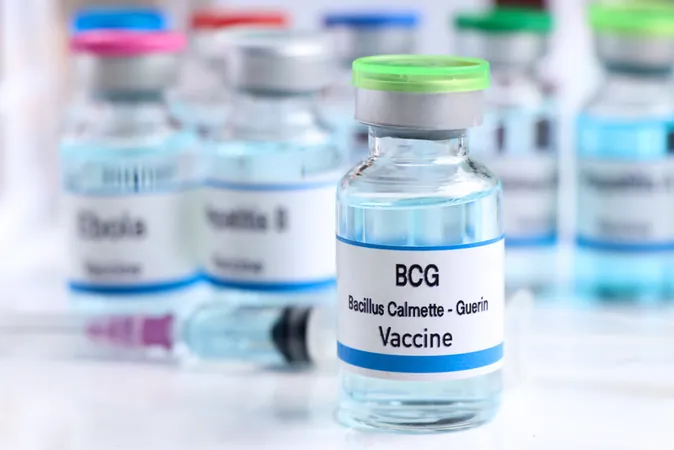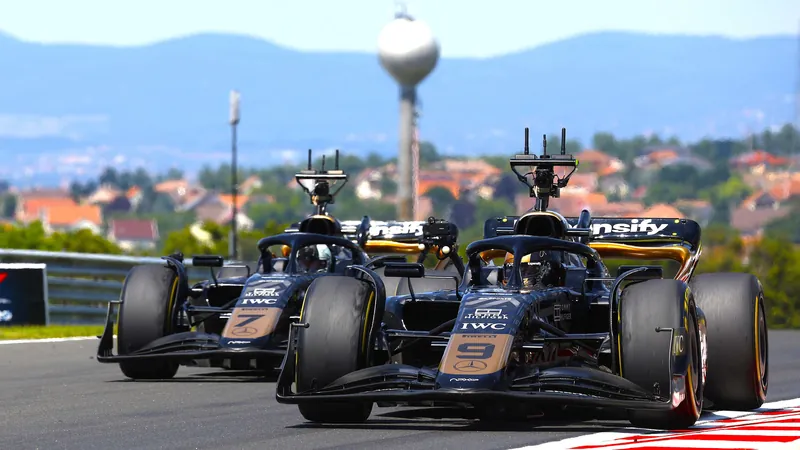
Ancient Vaccine, Cutting-Edge Science: How BCG is Revolutionizing Cancer Immunotherapy
2025-05-30
Author: Yu
What if a century-old tuberculosis vaccine could unlock new doors in cancer treatment? Researchers at Memorial Sloan Kettering Cancer Center (MSK) and Weill Cornell Medicine are digging deep into this very question, revealing groundbreaking insights about Bacillus Calmette-Guérin (BCG), a live attenuated strain of Mycobacterium bovis. Developed in 1921, BCG stands as the first—and still the only—vaccine for tuberculosis.
Over the decades, BCG has transitioned from a tuberculosis vaccine to an FDA-approved cancer immunotherapy in the 1980s, specifically for early-stage bladder cancer. Usually administered directly into the bladder, BCG has long been thought to act locally. However, emerging research suggests it's doing something far more impressive: reprogramming the body's immune response right at its origin— the bone marrow.
A study published in *Cancer Cell* dives into the mechanics of this phenomenon, showing that BCG doesn't just stay put; it actually transforms hematopoietic stem and progenitor cells (HSPCs). This change alters how the body generates vital immune cells, enhancing the production of monocytes, neutrophils, and dendritic cells that are more effective at presenting antigens and spurring inflammation. The ultimate outcome? A significant boost in T cell responses and a broader anti-tumor immunity.
Steven Josefowicz, PhD, a key researcher involved in the study, emphasized BCG's importance, stating, "BCG therapy has been one of the most successful immunotherapies for cancer. Now, it’s clear that it enhances the innate immune system's capacity to combat cancer." This revolutionary insight may illuminate why BCG has remained effective for so long, potentially paving the way for innovative approaches to boost existing immunotherapies.
To confirm these effects in humans, the researchers used a novel technique called Progenitor Input Enrichment single-cell sequencing (PIE-seq). Unlike traditional approaches that require invasive bone marrow biopsies, PIE-seq allows scientists to assess rare hematopoietic progenitor cells through a simple blood draw. This breakthrough enables a closer look at how BCG treatment modifies immune cell development in bladder cancer patients.
By comparing gene expressions of HSPCs before and after BCG treatment, researchers discovered significant transcriptional changes indicative of innate immune training. These findings align with results from mouse models, reinforcing the idea that BCG is reprogramming systemic immunity and not just providing localized responses.
In experiments with mice, pairing BCG with checkpoint inhibitors significantly enhanced tumor control and survival rates. Checkpoint inhibitors typically lift the 'brakes' on T cells in the adaptive immune system, while BCG appears to condition the innate immune system, providing essential support and guidance to these T cells.
"This has broad implications for immunotherapy more generally," concluded Josefowicz, highlighting the transformative potential of reprogramming immune cells in the bone marrow to amplify the effects of existing immunotherapies.
This latest research continues the legacy of BCG in cancer immunology at MSK. Back in 1959, MSK scientists Lloyd Old, MD, and his team published pioneering work demonstrating BCG’s ability to induce anti-tumor responses in mice, igniting a revolution in tumor immunology. Now, this bygone vaccine is making waves once again, potentially redefining immune-based treatments for cancer in the modern era.




 Brasil (PT)
Brasil (PT)
 Canada (EN)
Canada (EN)
 Chile (ES)
Chile (ES)
 Česko (CS)
Česko (CS)
 대한민국 (KO)
대한민국 (KO)
 España (ES)
España (ES)
 France (FR)
France (FR)
 Hong Kong (EN)
Hong Kong (EN)
 Italia (IT)
Italia (IT)
 日本 (JA)
日本 (JA)
 Magyarország (HU)
Magyarország (HU)
 Norge (NO)
Norge (NO)
 Polska (PL)
Polska (PL)
 Schweiz (DE)
Schweiz (DE)
 Singapore (EN)
Singapore (EN)
 Sverige (SV)
Sverige (SV)
 Suomi (FI)
Suomi (FI)
 Türkiye (TR)
Türkiye (TR)
 الإمارات العربية المتحدة (AR)
الإمارات العربية المتحدة (AR)